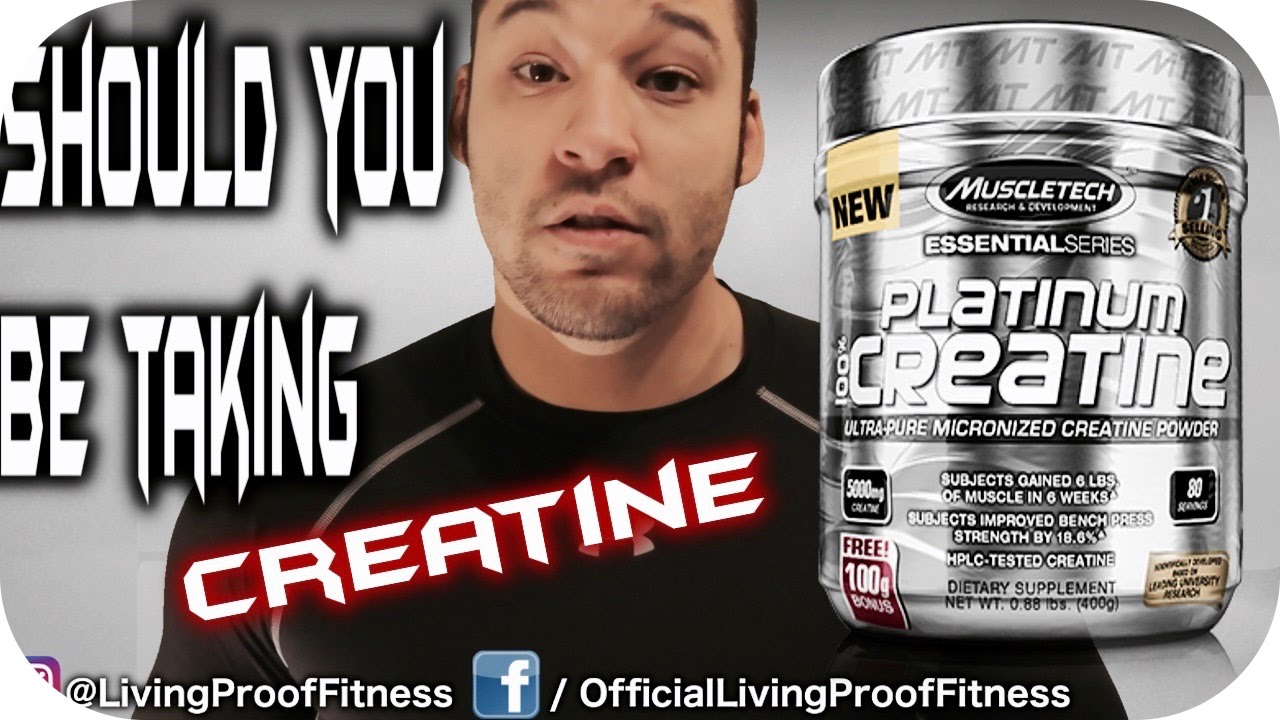Should You Take Creatine? A Comprehensive Review

Table of Contents
Creatine is a naturally occurring compound found in your body and in certain foods like red meat and fish. Its primary function is to help your muscles produce energy, specifically ATP (adenosine triphosphate), the fuel source for muscle contractions. Creatine's widespread use among athletes and fitness enthusiasts highlights its potential to enhance strength, power, and overall performance. This article aims to provide you with the information needed to make an informed decision about creatine supplementation.
The Science Behind Creatine
How Creatine Works
Creatine works by increasing the levels of creatine phosphate in your muscles. Creatine phosphate acts as a reservoir for energy, quickly replenishing ATP during high-intensity activities. This means your muscles can work harder for longer before fatigue sets in. The process of creatine phosphate donating a phosphate group to ADP (adenosine diphosphate) to reform ATP is known as ATP resynthesis, crucial for muscle energy production. Understanding this muscle energy mechanism is key to understanding creatine's benefits.
Types of Creatine Supplements
Several forms of creatine supplements exist, each with varying absorption rates and purported advantages. The most common and well-researched is creatine monohydrate, considered the gold standard due to its effectiveness and affordability. Other forms include creatine HCL (creatine hydrochloride), claimed to have better solubility and absorption, and creatine ethyl ester, though its efficacy is less established. The differences in creatine absorption among these forms are a subject of ongoing research.
- Key Benefits of Creatine Supplementation (Scientifically Backed):
- Increased strength and power output
- Enhanced muscle growth (muscle hypertrophy)
- Improved high-intensity exercise performance (HIIT)
- Faster recovery from intense workouts
- Increased lean muscle mass
Benefits of Creatine Supplementation
Improved Athletic Performance
Creatine significantly enhances athletic performance across various disciplines. Whether you're involved in strength training, powerlifting, weightlifting, or high-intensity interval training (HIIT), creatine can help you push harder and achieve better results. This is due to its ability to increase both strength and power, leading to improved performance in explosive movements and endurance in high-intensity activities. The improved muscle energy levels translate directly to better results.
Cognitive Benefits
Beyond physical performance, some studies suggest potential cognitive benefits of creatine supplementation. These include improvements in cognitive function, specifically memory improvement and enhanced brain health, particularly beneficial for older adults or individuals experiencing cognitive decline. However, more research is needed to fully understand these brain health benefits.
Other Potential Benefits
Aside from the aforementioned benefits, research indicates creatine may also improve muscle hydration, potentially reducing the risk of muscle damage and improving recovery.
Potential Risks and Side Effects of Creatine
Common Side Effects
While generally safe, creatine can cause some mild and temporary side effects in some individuals. The most common are weight gain (due to water retention), gastrointestinal issues such as cramping or diarrhea, and occasional muscle cramps. These creatine side effects are usually manageable and often disappear as the body adapts.
Who Should Avoid Creatine
Individuals with pre-existing kidney conditions or other serious health issues should consult their doctor before considering creatine supplementation. There are certain creatine contraindications for specific medical conditions. Kidney health is a crucial consideration. Always prioritize medical advice.
Creatine and Hydration
Maintaining adequate hydration is crucial when taking creatine to minimize potential side effects, especially water retention. Drinking plenty of water throughout the day is essential for optimal creatine usage and overall health.
How to Take Creatine Effectively
Dosage and Timing
A common creatine supplementation protocol involves a creatine loading phase, where you consume a higher dosage (20 grams per day) for the first 5-7 days to rapidly saturate your muscles. This is followed by a creatine maintenance dose of 3-5 grams per day. The optimal creatine supplementation protocol varies among individuals. Timing is less critical, but many prefer taking it post-workout.
Cycling Creatine
Creatine cycling, which involves periods of supplementation followed by periods of rest, is a common practice among some athletes, though research on its effectiveness is limited.
Combining Creatine with Other Supplements
Creatine can be synergistically combined with other supplements, such as protein, to optimize muscle growth and recovery.
Conclusion
Creatine supplementation offers numerous potential benefits for athletes and fitness enthusiasts, including enhanced strength, power, and muscle growth. However, it's important to be aware of potential side effects, which are generally mild and temporary. Whether or not to use creatine is a personal decision based on your individual goals, health status, and lifestyle. This review has aimed to provide the information you need to make an informed decision about creatine usage. Remember to consult with your doctor before starting any new supplement regimen. Make an informed decision about whether creatine is right for you. Learn more about creatine supplementation and its potential benefits by researching further, considering your specific needs and always prioritizing your health.

Featured Posts
-
 Dodgers Left Handed Hitters Struggle Can They Bounce Back
May 15, 2025
Dodgers Left Handed Hitters Struggle Can They Bounce Back
May 15, 2025 -
 Rfk Jr S Pesticide Claims Face Pushback From Trump Officials
May 15, 2025
Rfk Jr S Pesticide Claims Face Pushback From Trump Officials
May 15, 2025 -
 Padres Beat Athletics Claim Mlbs First 10 Win Mark
May 15, 2025
Padres Beat Athletics Claim Mlbs First 10 Win Mark
May 15, 2025 -
 Professional Boxer Aims To Bring Boxing Back To Reno
May 15, 2025
Professional Boxer Aims To Bring Boxing Back To Reno
May 15, 2025 -
 Man Convicted For Killing Estranged Wifes Friend In Warner Robins
May 15, 2025
Man Convicted For Killing Estranged Wifes Friend In Warner Robins
May 15, 2025
